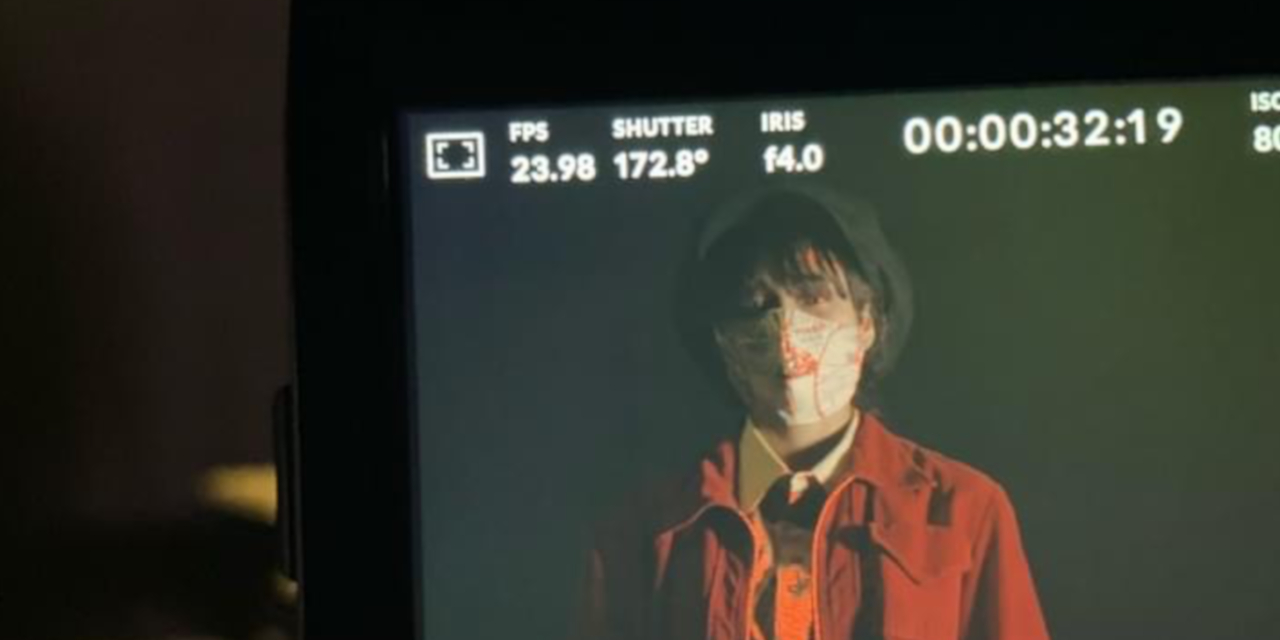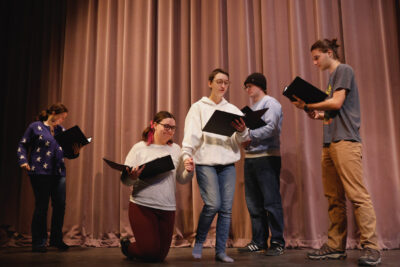When Goshen College’s campus shut down last March, the cast of “Cymbeline” was only two weeks away from opening night.
“Cymbeline,” the theater department’s spring mainstage, was then put on hold as performing in front of a live audience was no longer possible.The cast and production teams eventually chose to postpone the play until this fall, when it could be presented in a nontraditional format.
“We thought about moving immediately to a Zoom format and finishing the production right away,” said Anna Kurtz Kuk, associate professor of theater. “We thought about doing something online during May term or perhaps even over the summer. After consulting with the cast and production team, ultimately we decided to postpone the show until the fall.”
With COVID-19 restrictions in place, Goshen’s theater department will be presenting a unique rendition of this story titled “Cymbeline Interrupted.”
“With our production interrupted in the spring … the theme of ‘interruption’ seemed appropriate to embrace,” guest director Michelle Milne said.
Shakespeare’s “Cymbeline” tells the story of a king’s daughter whose lover has been banished from the kingdom, resulting in strained familial relationships, dealing with manipulation and a new perspective on the world. In Shakespearean fashion, it includes dramatic, intertwining storylines of fighting, trickery and love.
The project has two parts: a radio version and an interactive, online video version that will allow viewers to follow individual character’s paths through the show.
The radio version will be broadcast on 91.1 The Globe in early November, and the video version on Friday, Nov. 6.
“The radio broadcast will be the only way to experience the full story in the order of Shakespeare’s script,” Milne said. “It is a different way to experience theater than we are used to, and can be a lot of fun as well. Jacob Claassen has headed up the foley [sound] effects, and Lukas Thompson ‘19 has composed gorgeous, intriguing original music that lead us on an auditory journey of ‘Cymbeline.’”
“Cymbeline” in a virtual format required adaptation from the cast, as the dynamics of the cast’s rehearsal, acting and interactions with the production team were altered.
“Although we’ve drawn on principles of the theater discipline, this process has incorporated a lot of new elements and challenges as we’ve worked with audio and video,” Kuk said.
Lending their skills to the web design of the project, Jeanette Shown, associate professor of computer science and information technology, and several students in the computer science department are working to set up the website and web player for the show.
Salvador Escamilla, a senior computer science major, is part of the website team.
“It is definitely a project that came out of nowhere,” he said. “[It] seems fully appropriate for everybody being far apart … It’s also set up in a way that not many people have really experienced,” Escamilla said.
Many elements of the show have been adjusted to incorporate COVID-19 protocols.
“It’s a lot of pieces to put together,” Kuk said. “This project has also allowed for a really exciting collaboration on campus as we’ve worked with a team of web developers.”
For Shianne Harrison, senior theater and film production double major, her senior theater project is leading the video production portion of “Cymbeline.”
“I took notes from [Milne] and we collaborated to make a short list — a discussion of what kind of angles and shots were required for the video aspect of it and came up with how to film certain aspects of the show so we could edit it into a narrative,” said Harrison, who has been working on production since late August.
“We’re all still in the final stages of the post production process, where the video is getting wrapped up for the web design people this week.”
Harrison hopes to be finished with the editing process by Friday.
Bek Zehr, a senior music major and theater minor, is part of the original cast of “Cymbeline Interrupted” from last spring.
“All of us — designers, stage management, and actors — have been learning new skills along the way and working to support each other as best we can in such an unfamiliar time in the world and in theater,” Zehr said. “We’ve lived with this project in all of its forms for half a year by now, and I am so excited to see the end product of all our collaboration, creativity, and dedication.”



